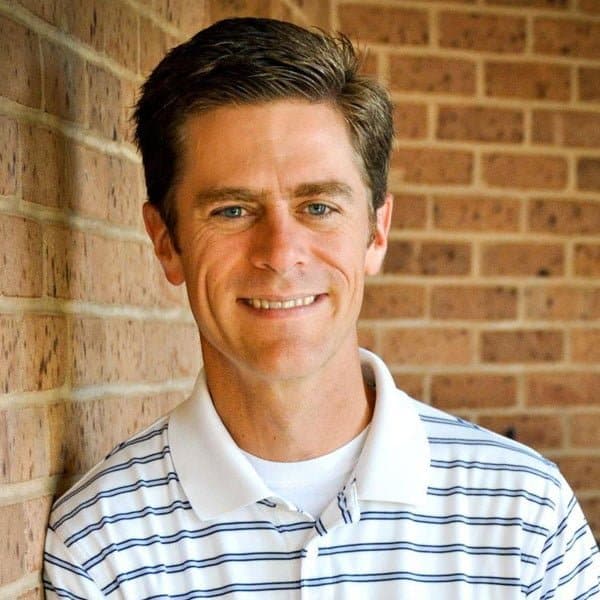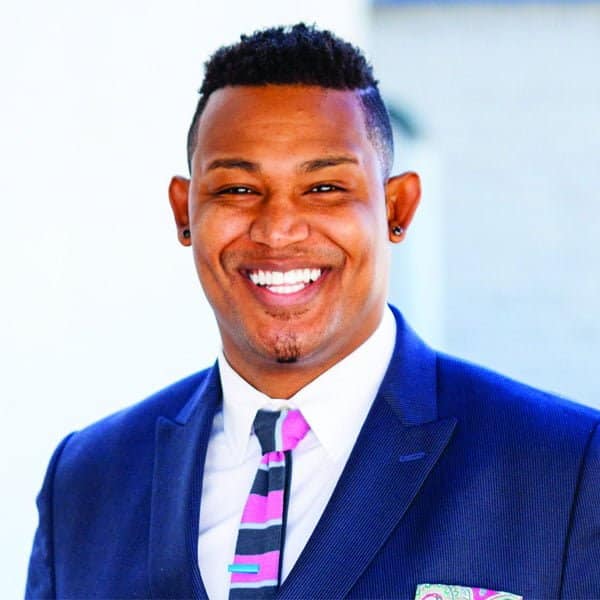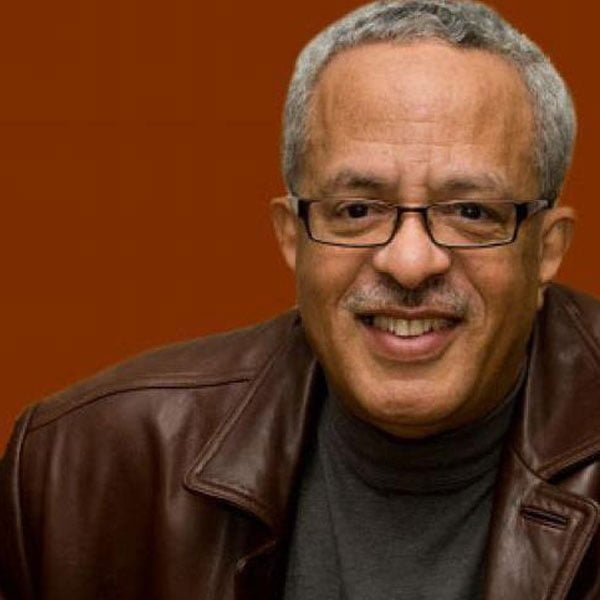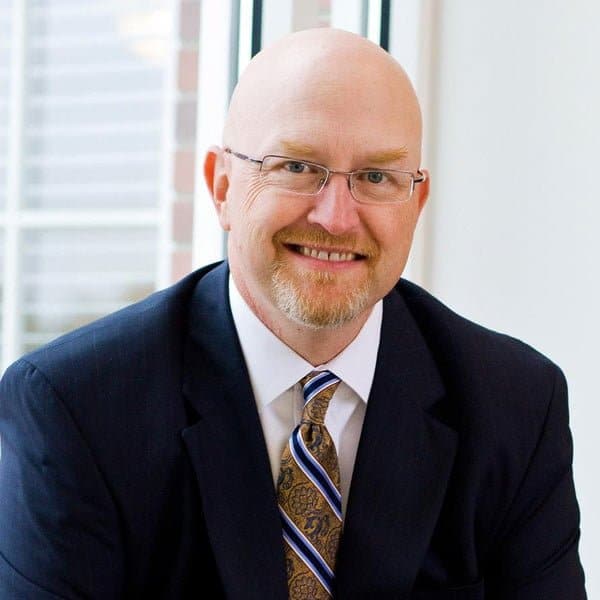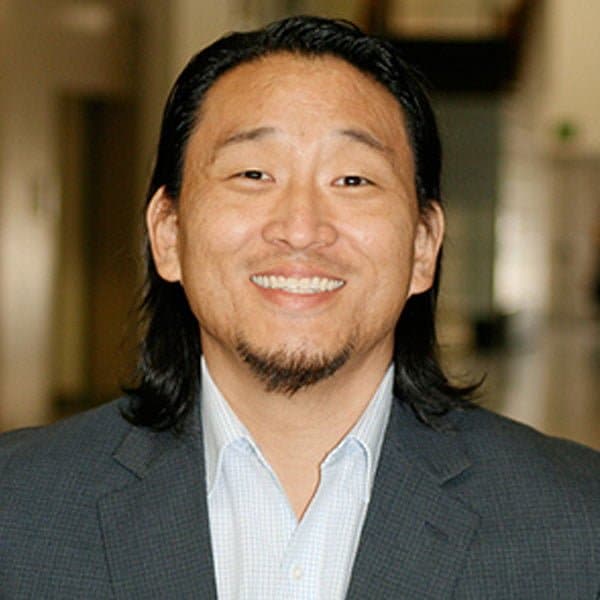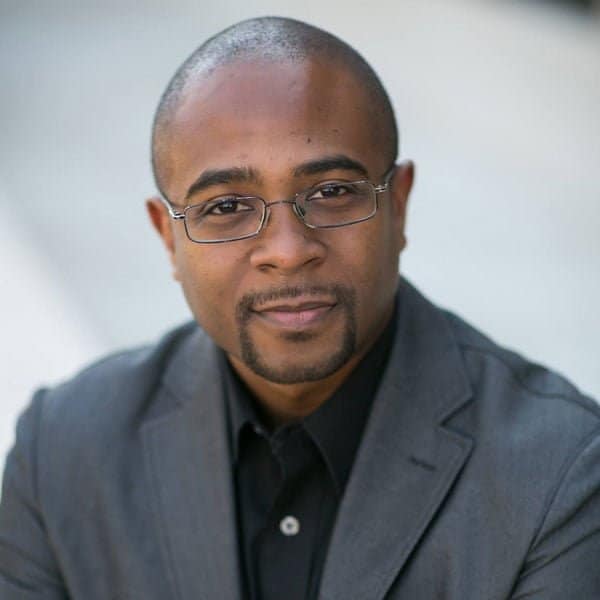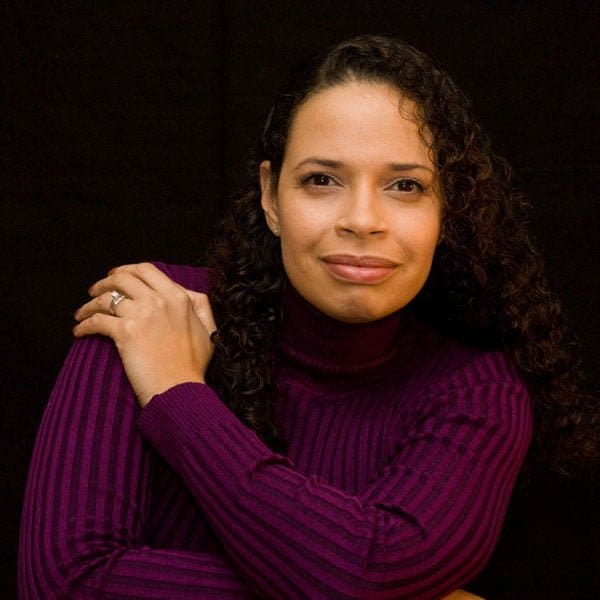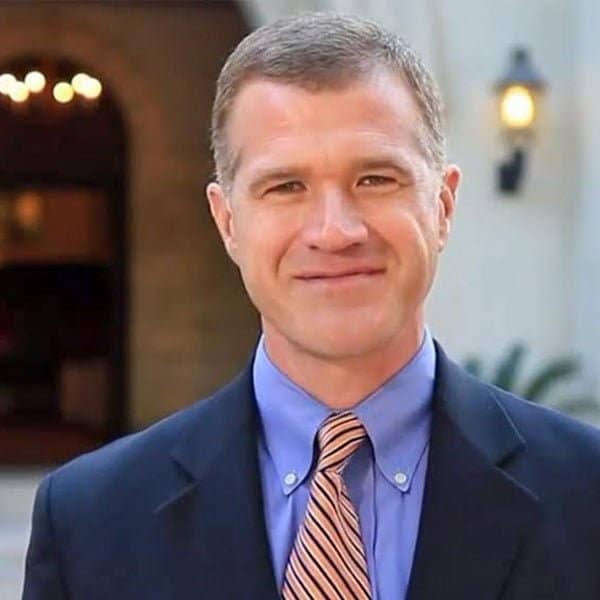What’s This All About?
The Race And The Church series is committed to creating a space where we can learn and reflect upon some of the important issues facing the church. Issues surrounding race and ethnicity, developing a fuller grasp of how the past affects the present, #blacklivesmatter, the pursuit of justice, and developing a framework through which we might pursue multi-ethnic and cross-cultural churches are some of the topics we will address. We are committed to the gospel of Jesus Christ and his glorious prayer that we might be one (John 17:11).
Prior to joining us for a session of Race and the Church, we recommend you watch the video below.
Sean Michael Lucas
Title: Race and History: How Does It Affect the Here and Now?
Time: 9AM
Date: January 30, 2016
Place: West End Presbyterian Church – 9008 Quioccasin Road, Richmond, VA – http://www.wepc.org
Summary: Can we let the past be the past, and instead of reflecting upon it, move on? There is a lot of hurt when we discuss the past, specifically as it relates to racism, slavery, and the church’s involvement. Wouldn’t it be better to move on and embrace what God is doing in the now versus dwelling on the past and even asking us to repent of past actions we did not commit? If it is right to acknowledge and repent of the past, how we can do that and move forward so that we have a brighter future?
Sean Michael Lucas
Sean Michael Lucas serves as the eighth senior minister in the historic First Presbyterian Church in Hattiesburg, Mississippi. Born in Stratford, New Jersey, Sean moved up and down the eastern seaboard as a child. He graduated from Bob Jones University (BA, 1993; MA, 1994) and Westminster Theological Seminary (PhD, 2002). He was ordained as a Presbyterian minister in 2003 and served on the staffs of two churches, Community Presbyterian Church (PCA) in Louisville, Kentucky, and the Covenant Presbyterian Church (PCA), St. Louis, Missouri. He, his wife Sara, and their four children went to FPC in 2009.
Léonce Crump
Justice: The Church’s Commission
May 14, 2016 | 9-11AM
Place: Community Church of God in Christ – 1801 Park Ave., Richmond, VA
Summary: Justice should be instituted both inside and outside the church. What are some examples of injustice within the walls of the church, particularly as it relates to race, and how can the church begin working on those areas? Injustice also exists outside the church. What is the responsibility of the church, both as an institution and individual Christians, to aid her neighbors in carrying out justice in the community? How does the gospel and God’s law influence our calling in each of those areas?
Léonce Crump
leoncecrump.com
Originally from Louisiana and raised Catholic, Léonce began following Jesus at age 16. Always an athlete and a talker, Léonce outran his first mall security guard (and pregnant mother) at age 3, and spent most of his grade school years talking with his principals on the subject of public speaking during class. He has been in ordained ministry for 9 years, is a graduate of the University of Oklahoma and holds Masters degrees in Criminal Justice, with a focus on Case Law (University of Tennessee), Missional Leadership (Resurgence Theological Training Center), and is currently finishing his Masters of Divinity at Reformed Theological Seminary.
At Oklahoma he was an All-American wrestler and played a short while on the Sooner football team. He experienced an extended time of rebellion and running from God during college, but after 22 months of living as though he were not a Christian he surrendered to Jesus and ultimately to God’s calling into ministry. After college Léonce competed to make the world team in wrestling, played professional football for the New Orleans Saints and coached collegiate wrestling.
Léonce pastored in 3 other churches prior, starting and leading 3 college and young adult ministries. In 2006 he felt called to plant a church and through prayerful seeking of direction settled on the under-served area of downtown Atlanta. In early 2008 he and his wife moved to Atlanta from Tennessee to begin the process of planting Renovation Church. In 2009 Léonce was assessed and approved as a member of the Acts 29 church planting network, and began a partnership with Perimeter Church in Atlanta in their commitment to local church planting.
A prodigious reader and engaging speaker, Léonce regularly speaks and preaches across the country at conferences and churches of all denominations. Léonce enjoys boxing and MMA, studying theology, history, leadership, church structure and poetry. He likes Soul music, jazz/standards, and Bossaniva. He also loves to lift, keep up with wrestling, football, and rugby, playing with his kids, hanging with the homeless dudes and going to art shows.
Leonce and his wife Breanna have lived in the Grant Park community of Atlanta for over 7 years, and have three children.
Carl Ellis
Title: Our Behavior Matters: Are We Behaving Like the Church or the World?
Time: 9AM
Date: September 10, 2016
Place: West End Presbyterian Church – 9008 Quioccasin Rd, Richmond, VA – http://www.wepc.org
Summary: The dominant and sub-dominant culture paradigms influence the way we behave in the world and in the church. How might we better recognize which paradigm we’re operating on? Do either of these paradigms influence the church negatively? What can we do to ensure these motifs are not getting in the way of establishing relationships across ethnicities and cultures for the building up of Christ’s Church? Should we consider a modified paradigm?
Carl Ellis
In 1969, Carl Ellis began his ministry as a Senior Campus Minister with the Tom Skinner Associates in New York. From 1979 to 1989, Carl served as the Assistant pastor of Forest Park Community Church in Baltimore, MD, served on faculty at Chesapeake Theological Seminary, and as a seminar instructor for Prison Fellowship where he developed and taught “in-prison” and “in-community” seminars for inmates and community volunteers. Between 1986 and 2009, Carl served as an adjunct faculty member at the Center for Urban Theological Studies (C.U.T.S.), and as Dean of Intercultural Studies at Westminster Theological Seminary in Philadelphia, PA. He continues to serve at C.U.T.S., and is also on the faculty at Redeemer Seminary in Dallas, Texas. Carl is currently the Associate Pastor for Cultural Apologetics at New City Fellowship.
Dr. Ellis studied under Francis Schaeffer at LÁbri in Hermoz sur Olon’, Switzerland, completed his Masters in Theology at Westminster Theological Seminary, and holds a D.Phil from Oxford Graduate School. He is also the author of Free at Last?: The Gospel in the African-American Experience.
David Prince
Title: The Elusive Dream: Pursuing Diversity in Predominantly White Churches
Time: 9AM
Date: November 19, 2016
Place: Sycamore Presbyterian Church – 510 Coalfield Rd, Midlothian – http://www.sycamorepres.com
Summary: We all embrace the call for the nations to be in our midst confessing Christ as Lord (Gen. 17:4; Matt. 28:16-20; Rom. 10:14-15). But if our context is predominantly white, it is possible? What can we do to ensure others know we love and respect them as image-bearers? How can we demonstrate that we respect their culture?
David Prince
David is the pastor of Ashland Avenue Baptist Church. He received his M.Div from Southwestern Theological Seminary and his Ph.D from the Southern Baptist Theological Seminary. In addition to his role at Ashland, he is also an Associate Professor for Christian Preaching and Pastoral Ministry at the Southern Baptist Theological Seminary in Louisville, KY.
Dr. Prince has written provocatively on the subject of race and the church. One of his more popular online articles, published at The Ethics & Religious Liberty Commission of the Southern Baptist Convention, is titled, “Jesus is Not Colorblind: Celebrating Ethnic Diversity in the Local Church.” He has also written, “A New Kind of Racial Profiling.”
Alexander Jun
Title: Why Do We All Look the Same? A Cultural and Theological Analysis of Underlying Church Dynamics
Time: 9AM
Date: March 12, 2016
Place: West End Presbyterian Church – 9008 Quioccasin Road, Richmond, VA – http://www.wepc.org
Summary: There are underlying assumptions about the way we plant churches and maintain our churches that can (un)intentionally exclude people of various ethnic, cultural, and socio-economic statuses. What are some of the good things that our churches have going for us? How have we, perchance, unknowingly prohibited our churches from reflecting the community in which our churches are located?
Alexander Jun
Alexander Jun, Ph.D., is a TED speaker and the author of From Here to University: Access, Mobility, and Resilience Among Urban Latino Youth (Routledge Press, 2001). He has published extensively on issues of postsecondary access for historically underrepresented students in underserved areas, and recently completed a three-year narrative inquiry research project on the educational mobility and academic resilience of Khmer orphans, which he’s completing a book about. Jun conducts research on issues surrounding higher education globalization in the Pacific Rim, and while studying at the University of Southern California, he earned a Ford Foundation fellowship to conduct research on college preparation programs for urban youth. Jun teaches courses on diversity and social justice in higher education, comparative higher education, and qualitative research methods, and joined APU after 15 years as a faculty member and administrator at USC.
Dr. Jun received his Ph.D. in Education Administration and Policy (University of Southern California); M.S. in Higher Education Counseling (California State University, Los Angeles); and a B.A. in Political Science and Psychology (University of Southern California).
He is a ruling elder in the Presbyterian Church in America. He also participated in an assembly-wide panel discussion on race and the church at the 43rd PCA General Assembly.
Jemar Tisby
Title: Understanding the Heart Cry of #blacklivesmatter
Time: 9AM
Date: July 16, 2016
Place: Veritas – 3400 Brook Road, Richmond, VA – http://veritasschool.com
Summary: We all wrestle for power and a desire to be heard. In the church’s present state, is there a sense in which blacks particularly need to be heard? If so, does that suggest that all others are ignored? The immediate response, from many, to #blacklivesmatter is that all equally matter. How does each hashtag speak for the need for people to be heard and perhaps especially blacks? What can listening to the voices of many African-Americans do for our churches? What about poor whites and all others?
Jemar Tisby
Jemar (B.A. Notre Dame; MDIV RTS Jackson) is the President and Co-Founder of the Reformed African American Network (RAAN) where he blogs about theology, race, and culture. His writing has been featured on Urban Faith, Desiring God, and The Gospel Coalition. Jemar serves as the Director of the African American Leadership Initiative and Special Assistant to the Chancellor at RTS Jackson. He is a member of Redeemer Church, is married and has one child.
Karen Ellis
Title: Welcome to the Margins: What the Evangelical Church can Learn from Persecuted Christians
Time: 9AM
Date: September 10, 2016
Place: West End Presbyterian Church – 9008 Quioccasin Rd, Richmond, VA – http://www.wepc.org
Summary: Persecution affects the dominant and sub-dominant culture paradigms. How so? What has it done around the world as Muslims persecute Christians? How might persecution in the USA affect that paradigm? Will this be for our benefit? Will persecution cause the church in the USA to be more unified?
Karen Ellis
Karen Angela Ellis, works alongside her husband, exploring the zones where identity, human rights and theology intersect. She has performed, spoken and lectured in Eastern Europe, Canada, the Caribbean, Indonesia and in South America. In her twenty year career, she has been seen in classrooms, conferences, on radio, television, film and onstage. Karen holds a Master of Arts in Religion (Theological) from Westminster Theological Seminary, and a Master of Fine Arts from the Yale School of Drama.
George Robertson
Title: Walking the Path of Love
Time: 9AM
Date: November 19, 2016
Place: Sycamore Presbyterian Church – 510 Coalfield Rd, Midlothian – http://www.sycamorepres.com
Summary: Having conversations about race in church can be difficult. The difficultly only increases when one desires to have these conversations in an historic church in the south. George Robertson, Senior Pastor of First Presbyterian Church in Augusta, GA, will discuss the development of these conversations in his congregation. History, segregation, repentance, a commitment to learning, and a new investment in African-American leaders were all a part of the conversation. Although still a predominantly white congregation, they are moving forward.
George Robertson
Dr. George W. Robertson is the Senior Pastor of First Presbyterian Church of Augusta, Georgia, where he has served since July, 2005. He earned his baccalaureate degree from Covenant College in Lookout Mountain, Georgia, his Master in Divinity and Master in Theology degrees from Covenant Theological Seminary in St. Louis, Missouri, and his Doctor of Philosophy degree in Historical and Theological Studies from Westminster Theological Seminary in Philadelphia, Pennsylvania. Dr. Robertson formerly served as pastor of Covenant Presbyterian Church in St. Louis and as lecturer/adjunct professor of Practical Theology at Covenant Theological Seminary. He currently serves as Adjunct Professor of Worship and Preaching at Erskine Theological Seminary. He was a former Trustee Advisor and Vice-Chairman of the Board of Trustees at Covenant College. He also serves as a council member for the Gospel Coalition. Dr. Robertson is the author of Am I Called? Basics of the Faith and What Is Evangelism? Basics of the Faith published by P & R Publishing. He also authored, along with Mary Beth McGreevy, of several Bible studies including Deuteronomy—More Grace, More Love: Living in Covenant with God, Responding to Grace (James); and Dearly Beloved (1, 2, 3, John) published by Committee on Discipleship Ministries; and The Gospel According to the Ten Commandments;and Christ, the Conquering Lamb (Luke);which are independently published. Dr. Robertson contributed to the ESV Gospel Transformation Bible published by Crossway. He and his wife, Jackie, have four children.

